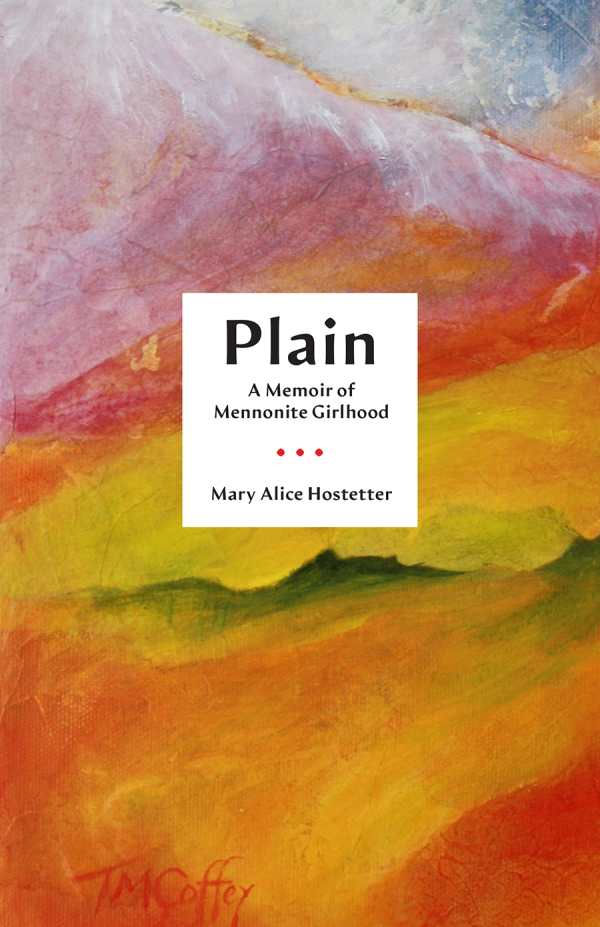Plain
A Memoir of Mennonite Girlhood
In Plain, Mary Alice Hostetter chronicles her formative years within a Mennonite family and her later quest for personal independence.
In Pennsylvania, Hostetter and her siblings worked on her parents’ farm. She also helped with household chores and attended church services and gatherings. Leisure time was rare, and individual needs were regarded as secondary to family and community.
Nonetheless, Hostetter enjoyed moments of quiet rebellion, like sneaking off to a wheat field to read in blissful solitude. As a teenager, she worked at Plain and Fancy, an Amish-themed restaurant and gift shop. She gave most of her wages to her parents, but kept any tips she received for herself.
Plain is filled with engrossing details about midcentury Mennonite life. Unlike their Amish contemporaries, Hostetter and her brothers and sisters could drive cars, use telephones and electricity, and had vocational freedom. Still, there were conventional expectations, with women in particular encouraged to become wives, with the other option being spinsters, or the more euphemistic “unclaimed blessings.”
After college, Hostetter pursued a teaching career and moved to West Virginia. She came to the gradual awareness that she was a lesbian. Years later, after her mother had passed away, Hostetter and her gay older brother both wrote formal coming out letters to their father. By then in his nineties, their father reasoned that, despite the traditional Mennonite Church’s outrage against homosexuality, being gay wasn’t a sinful abomination, and surely no reason to tear families apart.
While Plain recounts Hostetter’s emergence from her upbringing, the memoir is balanced by its innate appreciation of Mennonite culture. The focus on craftsmanship and hard work, the communal caring for the elderly, and even the daily journals Hostetter’s mother kept for decades indicate a devout and distinct collective purpose.
Engaging and reflective, Plain is a complex memoir about moving beyond the Mennonite faith while maintaining an integral connection to its lessons.
Reviewed by
Meg Nola
Disclosure: This article is not an endorsement, but a review. The publisher of this book provided free copies of the book to have their book reviewed by a professional reviewer. No fee was paid by the publisher for this review. Foreword Reviews only recommends books that we love. Foreword Magazine, Inc. is disclosing this in accordance with the Federal Trade Commission’s 16 CFR, Part 255.

